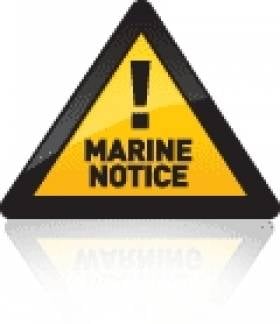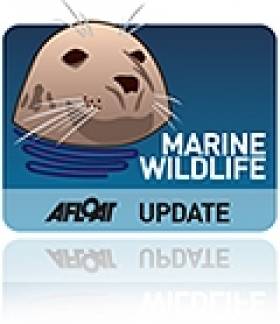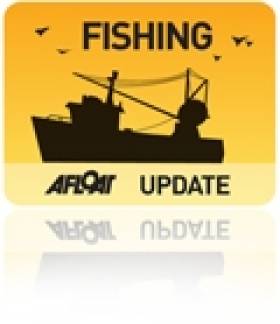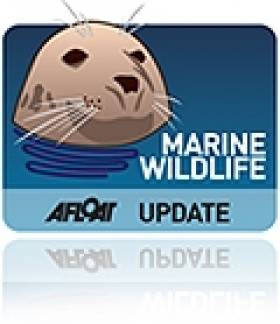Displaying items by tag: disease
Ebola Virus Disease (EVD) – Maritime Declarations of Health For Ships Docking at Irish Ports
#ebola – The Department of Transport, Tourism and Sport has been requested to publicise the attached (downloadable below as a word file) Health Service Executive letter regarding the submission of a Maritime Declaration of Health for ships docking at Irish ports, which have called at an Ebola EVD affected area or have crew/passengers that joined the vessel from such an area, or are suspected of having been in contact with the Ebola virus or an affected person within the past.
Dolphins Decimated By Disease On America's Atlantic Coast
#DolphinDeaths - Hundreds of bottlenose dolphins have died in strandings along the east coast of the United States this summer - and a measles-like virus could be to blame.
As The Irish Times reports, the National Oceanic and Atmospheric Administration (NOAA) is currently investigating the extraordinary die-off, which has been tentatively connected to morbillivirus, an immune system suppressor similar to the virus that causes human measles.
In numbers not seen since the late 1980s, as many as 333 dolphin carcasses have been found on the shoreline between New York and North Carolina, more than 10 times the average for this time of year.
Researchers from universities and marine institutes are concentrating on the Virginia coastline, where the majority of the dead cetaceans have been found, and believe they have identified evidence of morbillivirus in nearly all sampled carcasses.
Wired Science says scientists do not yet know what caused the outbreak, though they speculate that dolphins may simply have lost their natural immunity to the virus since the last attack.
And according to the NOAA's Teri Rowles: “At this point, there isn’t anything to stop the virus.”
As of yet there are no indications if the virus could migrate to dolphin populations on this side of the Atlantic, particularly in the designated cetacean sanctuary of Irish waters.
Wired Science has much more on the story HERE.
Connemara Oyster Grounds To Lose Disease-Free Status
#Fishing - The Marine Institute is encouraging the agreement of a new code of practice for oyster fishing at Ballinakill Bay in Co Galway, which is set to lose its disease-free status.
Galway Bay FM reports that a single oyster out of 900 tested at the bay, near Letterfrack on the north-west coast of Connemara, tested positive for the Ostreid herpes virus two years ago as part of an EU-supported programme.
Though accounting for just 0.11% of the entire sample, the positive test is enough to strip the area of its clean status.
Senator Trevor O'Clochartaigh raised the issue in the Seanad last week, which prompted the Department of the Marine to confirm that the Marine Institute recommends a code of practice that would see the area's status eventually reinstated.
Public Needed to Help Record Whale and Dolphin Strandings in UK
#MARINE WILDLIFE - Some 46 reports of stranded whales and dolphins in Northern Ireland are among the thousands recorded across the UK over the last six years, according to BBC News.
A new study co-ordinated by the Zoological Socoety of London (ZSL) shows that some 3,500 cetaceans were stranded on the British coastline between 2005 and 2010.
Though year-on-year figures have fallen overall, is presumed that many more strandings have gone undetected.
Many were found to have died of disease or starvation – particular harbour dolphins.
But human activity such as fishing, shipping and chemical pollution also poses a significant threat to marine wildlife in the waters around the British Isles, said Rob Deaville of the ZSL.
The public is being encouraged to report stranded marine mammals to help create a more accurate picture.
BBC News has more on the story HERE.
Disease a Possibility in New England Seal Deaths
Experts in the United States are investigating the possibility of a disease outbeak as the number of dead seals found on New England beaches continues to grow.
The Gloucester Times in Massachusetts reports that some 128 harbour seals have been found deceased this year along the coastline from Massachusetts to Maine.
Initial results from post-mortems carried out on 10 harbour seals washed up in northern Massachusetts indicate no direct human involvement, and also ruled out physical attacks or effects of fishing.
All the dead seals are reportedly young and healthy, with enough body fat to rule out starvation.
"We have collected biological samples and are looking at potential biological toxins," said a spokesperson for the National Oceanic and Atmospheric Administration. "At this point we aren't ruling anything out."
It's believed that the marine wildlife casualties are unrelated to the recent discovery of seven dead seals in Donegal, due to the distance between the incidents and the difference in species.































































